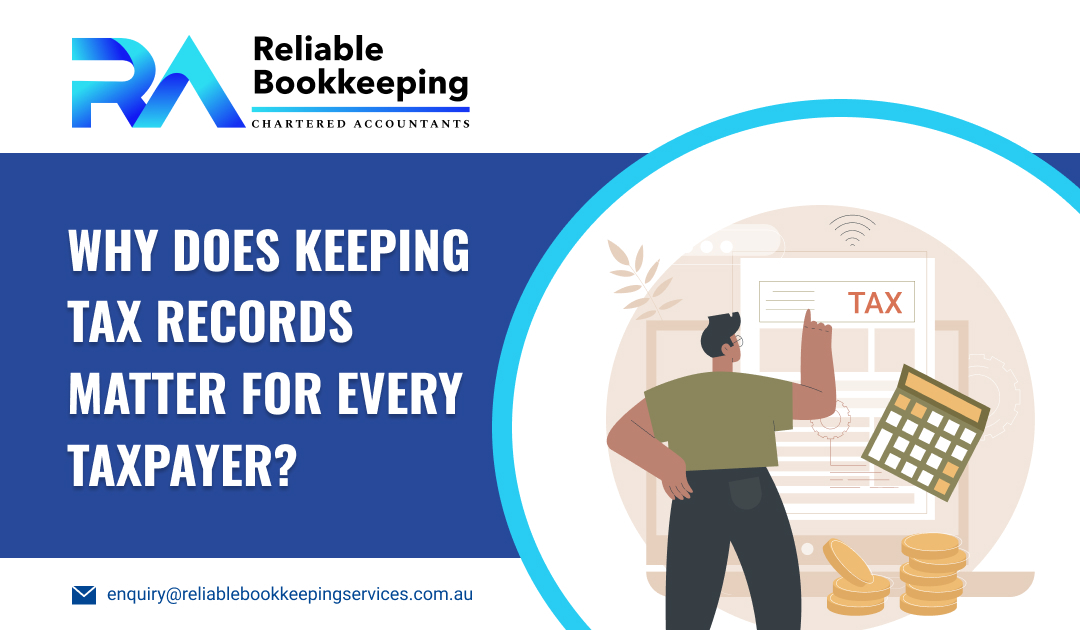When it’s tax season, you may have to keep every record accurately because these records are often used by tax agents to prepare and lodge tax returns. If you have bookkeepers, then they will be responsible for keeping and maintaining company records. In this blog post, we’ll discuss common records that every business owner must keep as evidence when claiming any tax deduction. Furthermore, there are various benefits of keeping accurate business books. Let’s explore the type of records you need to keep and the time duration to keep records.
Understanding Keeping Accurate Records
Records of expenses or income can be either electronic or on paper. You are required to maintain records to claim potential tax deductions. For most expenses, you must have a receipt or document from the supplier. Here are some records that are acceptable:
- business name or the name of the supplier
- the cost of the asset or the expense amount
- the nature of services or goods you purchase
- the date you purchase services or goods
- the date the document was generated.
A credit card or bank statement that doesn’t include this information will not be acceptable.
What type of records do you need to keep?
The format and type of records you will need to maintain may vary based on what they are for. You are required to maintain records for:
Amounts or payments you receive
If you receive amounts or other payments, you are liable to mention them in the tax return, and you must have records that show the amounts. Don’t forget to provide a copy of the records to the ATO if they review a tax return you file. If you find it difficult to keep and maintain any record, consider getting bookkeeping services in Melbourne.
For wages, salary, government payments, allowances, or pensions and annuities that you receive, your record must include:
- Your income statement if your employer reports to the ATO using single touch payroll.
- Your PAYG payment summary – individual non-business
- A signed letter or statement from your payer, which gives the same information as an income statement.
- Your Pay As You Go payment summary – superannuation income stream.
Deductible expenses
You need to maintain records if you are likely to claim a deduction for deductible expenses. For example, the cost of managing tax matters or donations you make to a deductible gift recipient. For most expenses, you must have a receipt as evidence of your expenses. You can also ask a bookkeeper for small businesses to manage a record of everything to manage your tax matters.
Work-related expenses
Work-related expenses are expenses incurred in earning your wage and salary. If you want to claim a deduction for work-related expenses, you need to have:
- Written evidence, including invoice or receipt, which includes the following information:
- business name or the name of the supplier
- the expense amount
- the nature of services or goods you purchase
- the date you purchase services or goods
- the date the document was generated.
- Records of those expenses that relate to earning your income.
Record for local government councillors
If you obtain an allowance from a council, you must have written evidence of the work-related and car expenses incurred in performing duties.
Investments and assets
If you need a capital asset, you will make a capital loss or capital gain if you later dispose of the asset. To avoid paying more than necessary, keep records from when you buy the asset. This may include received income from an investment property or dividends from shares.
How Long Do You Need to Keep Records?
You are subject to maintain records for 5 years from the date you file your tax return. These records are often used by a tax accountant at the time of tax return lodgment. When searching online for ‘accountant for small business near me’, be sure to check their experience so you can be sure that they will lodge a tax return on time and accurately.
- You can claim a deduction for the decline in value of depreciating assets up to 5 years from the date of your last claim.
- Similarly, if you acquire or dispose of a Capital Gains Tax (CGT) asset, you have 5 years after the CGT event to take action.
- If you are in a dispute with the ATO, the following time frames apply:
- You may have up to 5 years from the date you lodge your tax return, or
- 5 years from when the dispute is resolved, whichever period is longer.
Conclusion
As an individual or a business owner, you need to keep accurate records for tax matters. You can consider contacting a bookkeeper for reliable bookkeeping services, so you can be sure that you have accurate records.

